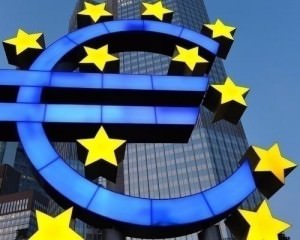Europe Should Stop Waiting on Superman
Continent cannot rely on foreign aid for solution to financial crisis
The euro zone crisis is the first golden opportunity since World War II for the European governments to come together and advance their ambitious union project. They need to realize the crisis is in their hands, and their hands alone, so they can stop waiting for a superhero to come to their rescue.
By: Ellie Chan, Staff Writer
After months of delay, the euro zone leaders finally reached a long-awaited agreement on October 27 to lessen Greece’s debt burden by seeing private investors take a 50 per cent loss on Greek bonds. Nicolas Sarkozy, the French president, and Angela Merkel, German Chancellor, want to see the plan implemented immediately to boost investor confidence and stabilise world markets.
However, George Papandreou, Greece’s ex-leader, surprised his EU counterparts and the world this week with the sudden withdrawal of a public vote on Greece’s euro membership. Market confidence has once again diminished due to Papandreou’s mismanagement of the crisis. He crumpled under pressure and resigned as prime minister on Sunday. The euro zone crisis spirals further downward in light of political uncertainty.
The problem started before Greece joined the EU. Athens embellished its balance sheets in order to meet the union’s adhesion requirements, and later announced the state was bankrupt. Public expenditure exceeded tax revenues, and the Greek government was unable to finance the gap in the markets.
Germany and France, the two main pillars sustaining the EU project today, are heavily investing their capital into the European Financial Stability Facility (EFSF) to rescue Europe. It is in their own interest that these two countries avoid, at all costs, a Greek exit from the union. But in order for Greece to remain economically sound and sustain its position within the euro zone, Germany and France have to boldly and decisively inject more financial aid into the country -that has yet to happen.
Germany, the wealthiest nation in the union, has the financial power to stabilise the crisis, but it won’t. It is afraid the troubled economies will slack away from reforms, so Merkel is leveraging market pressure to ensure these countries keep their promises.
Domestically, German taxpayers are furious that their hard-earned money is going towards the feckless Greeks. Merkel’s reluctance to act is apparent: German guarantees for the EFSF will not increase beyond the €211 billion ($292 billion) approved in September, though it is obvious the rescue fund and troubled Europe need more. Without firm German support, it is almost impossible to gain global market confidence.
[pullquote]
In order for Greece to remain economically sound…Germany and France have to boldly and decisively inject more financial aid into the country
[/pullquote]
And France? The second largest economy in the EU is currently teetering on the brink of a financial breakdown. French public debt reached 82.4 per cent of GDP last year, and its money reserves are running out. Increasing its contribution to the European rescue fund could threaten a downgrade of the country’s triple A credit rating – and the timing couldn’t be worse. If France loses investor confidence and becomes shut off from market borrowing, it could tumble, and Germany cannot uphold the union alone.
Unable to reach a decision, the union is now reaching out for external help, namely from China. With $3.2 trillion in its reserves, China has enough financial power to step in and end the crisis. It has the will to do so too, since the EU is its largest trading partner.
However, we should not expect too much. The constant squabbling between the EU leaders has systematically destroyed investor confidence, worsened the debt crisis, and fully displayed the absence of political cooperation within the region. Papandreou’s departure will certainly have lasting effects on world markets. Germany and the European Central Bank (ECB) both refuse to provide unlimited financial support to countries in case of sovereign default, and yet, are hoping China will answer the call.
The Chinese, in their best interest, will not and cannot invest in a Europe that is unwilling to help itself. Until the leaders can put forth a rescue plan that is detailed, firm, and ambitious, China can only stand by and watch.
ARB Team
Arbitrage Magazine
Business News with BITE.
Liked this post? Why not buy the ARB team a beer? Just click an ad or donate below (thank you!)
Liked this article? Hated it? Comment below and share your opinions with other ARB readers!

























Share the post "Europe Should Stop Waiting on Superman"